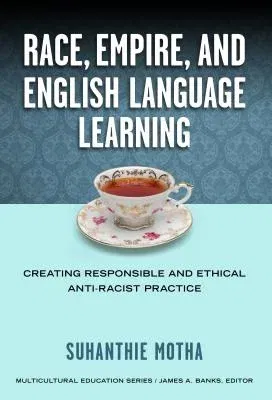Suhanthie Motha
(Author)Race, Empire, and English Language Teaching: Creating Responsible and Ethical Anti-Racist PracticePaperback, 18 April 2014

Temporarily out of stock
Free Delivery
Cash on Delivery
15 Days
Free Returns
Secure Checkout

Part of Series
Multicultural Education
Print Length
184 pages
Language
English
Publisher
Teachers College Press
Date Published
18 Apr 2014
ISBN-10
0807755125
ISBN-13
9780807755129
Description
Product Details
Author:
Book Format:
Paperback
Country of Origin:
US
Date Published:
18 April 2014
Dimensions:
22.83 x
15.7 x
1.19 cm
Genre:
Multicultural
ISBN-10:
0807755125
ISBN-13:
9780807755129
Language:
English
Pages:
184
Publisher:
Series:
Weight:
294.83 gm